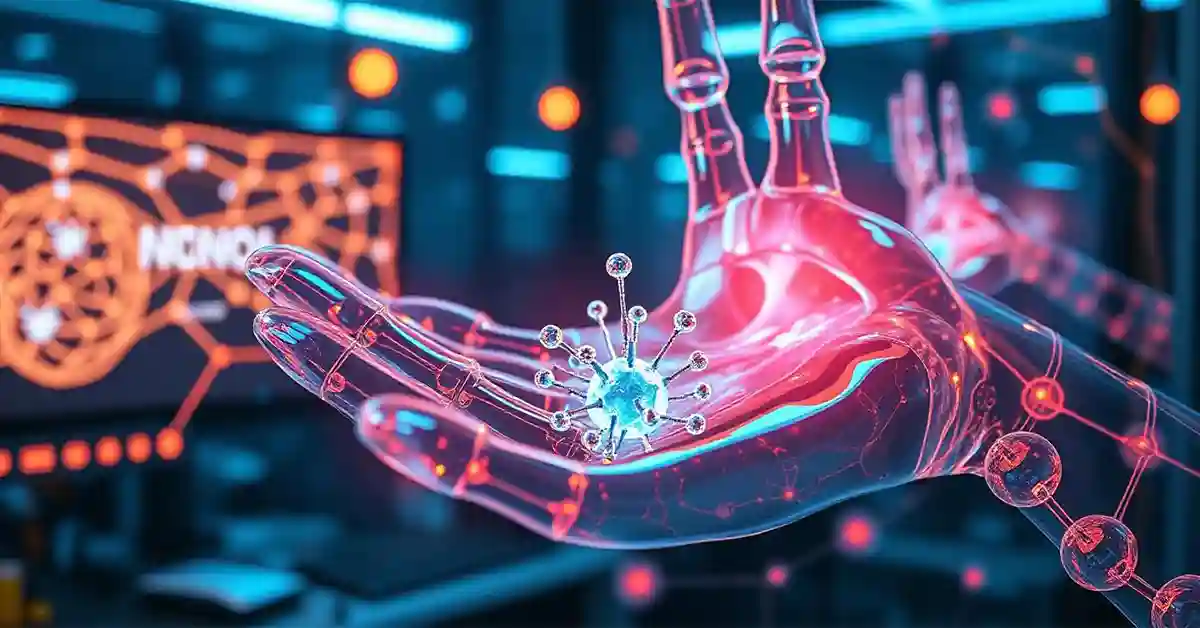In a world where technology evolves at lightning speed, nano technologies stand as a beacon of innovation. These microscopic marvels have the potential to revolutionize industries, redefine healthcare, and enhance everyday life. Their significance cannot be overstated, as they operate on a scale smaller than a human hair, enabling breakthroughs once thought impossible. From medicine to electronics, nano technologies are reshaping our future.
What are nano technologies, and how can they transform our lives? At their core, nano technologies involve manipulating materials at an atomic or molecular level to create structures with unique properties. Imagine materials that are stronger yet lighter, or treatments that can target diseases with incredible precision. How will these tiny innovations change the way we live and work? What challenges do they present, and what solutions can they offer? This article will explore the fascinating world of nano technologies and their implications for different industries.
The potential of nano technologies is vast. In healthcare, they promise targeted drug delivery systems that minimize side effects. In computing, they pave the way for faster, more efficient devices. Environmentally, they offer solutions for cleaner energy and pollution reduction. It’s crucial to understand these advancements and their applications to appreciate their impact fully. Join us on this exploration of nano technologies and discover how these tiny wonders can make big changes.
Understanding Nano Technologies
Nano technologies refer to the science and engineering of manipulating matter at a nanoscale, typically between 1 and 100 nanometers. To put it simply, a nanometer is one-billionth of a meter, which is so tiny that it’s invisible to the naked eye. At this scale, materials often exhibit unique physical and chemical properties that differ from their larger counterparts.
The concept of nano technologies is not entirely new; it has been around for decades. However, recent technological advancements have propelled it into the spotlight, enabling scientists and engineers to fabricate and control these tiny structures with increasing precision. Nano technologies are applicable in various fields, from creating stronger materials to developing new medical treatments.
In essence, nano technologies unlock the potential for breakthroughs that were once considered science fiction. By understanding the fundamental principles of nanoparticles and their interactions, researchers can develop innovative solutions to address some of the world’s most pressing challenges.
The Impact on Healthcare
One of the most promising applications of nano technologies is in the field of healthcare. Medical researchers are using these technologies to develop targeted drug delivery systems that can precisely target diseased cells while minimizing damage to healthy ones. This approach has the potential to improve the effectiveness of treatments for diseases like cancer.
In addition to drug delivery, nano technologies are being used to develop diagnostic tools capable of detecting diseases at an early stage. Nanoscale sensors and imaging agents can provide detailed information about a patient’s condition, allowing for earlier intervention and improved outcomes.
Nano technologies also play a role in regenerative medicine. Scientists are researching ways to use nanoscale materials to create scaffolds that promote tissue growth, potentially leading to advances in wound healing and organ regeneration.
Revolutionizing Electronics
The world of electronics is another area where nano technologies are making significant strides. With the demand for faster, smaller, and more efficient devices, researchers are turning to nanoscale materials to push the boundaries of what is possible. For example, carbon nanotubes and graphene are being explored as alternatives to traditional silicon-based components in transistors and circuitry.
These nanomaterials offer incredible electrical conductivity and mechanical strength, enabling the development of smaller and more powerful electronic devices. The potential applications range from faster processors in computers and smartphones to advanced sensors in wearable technology.
Furthermore, nano technologies are driving innovations in energy storage. Researchers are working on nanoscale batteries and supercapacitors that could significantly improve the charging speed and capacity of electronic devices, revolutionizing the way we use and store energy.
Environmental Solutions
Nano technologies hold promise for addressing environmental challenges as well. Researchers are exploring ways to use nanoscale materials to clean up pollutants in air, water, and soil. Nanoscale catalysts can break down harmful chemicals, while nanofilters can remove contaminants from water sources.
In the realm of renewable energy, nano technologies are being used to develop more efficient solar panels and fuel cells. By enhancing the properties of materials at a nanoscale, scientists can improve the energy conversion efficiency of these devices, making clean energy sources more viable and accessible.
Additionally, nano technologies can contribute to sustainable agriculture. Nanoscale fertilizers and pesticides offer the potential for more efficient nutrient delivery and pest control, reducing the environmental impact of traditional farming practices.
Nano Technologies in the Textile Industry
The textile industry is experiencing a transformation thanks to nano technologies. Nanoscale coatings and treatments are being applied to fabrics to enhance their properties. For instance, nanoscale treatments can make textiles water-repellent, stain-resistant, and even antimicrobial.
These innovations not only improve the functionality of clothing but also extend their lifespan. Imagine clothes that repel dirt and odors, reducing the need for frequent washing. Nano technologies have the potential to revolutionize the way we think about clothing and its impact on the environment.
Beyond clothing, nano technologies are being used in the production of advanced textiles for industries like healthcare and aerospace. These fabrics incorporate nanoscale materials to enhance their strength, flexibility, and heat resistance.
Overcoming Challenges and Ethical Considerations
While the potential of nano technologies is vast, there are challenges and ethical considerations that must be addressed. The manipulation of materials at a nanoscale raises questions about their safety and potential environmental impact.
Researchers must ensure that nanoscale materials do not pose risks to human health or the environment. Rigorous testing and regulation are essential to minimize any unintended consequences. Additionally, ethical concerns arise regarding the potential for misuse of nano technologies in areas such as surveillance or weapons development.
It is crucial for scientists, policymakers, and society as a whole to engage in open discussions about the responsible development and use of nano technologies. By addressing these challenges, we can harness the benefits of this technology while minimizing potential risks.
The Future of Nano Technologies
Looking ahead, the future of nano technologies is filled with exciting possibilities. Continued advancements in research and development will likely lead to even more groundbreaking applications across various industries.
As our understanding of nanoscale materials deepens, we can expect to see innovations that were once unimaginable. From personalized medicine to sustainable energy solutions, nano technologies have the potential to reshape our world in profound ways.
However, it is important to remain vigilant about the ethical and environmental implications. Responsible development and collaboration between stakeholders will be key to ensuring that the benefits of nano technologies are realized while minimizing potential risks.
Frequently Asked Questions and Answers
What are nano technologies?
Nano technologies refer to the science and engineering of manipulating materials at an atomic or molecular level, typically on a nanoscale, to create structures with unique properties.
How are nano technologies used in healthcare?
Nano technologies are used in healthcare for targeted drug delivery, early disease detection, and regenerative medicine. These applications improve treatment outcomes and advance medical diagnostics.
What impact do nano technologies have on electronics?
Nano technologies enhance electronics by enabling smaller, faster, and more efficient devices. They are used in transistors, sensors, and energy storage solutions, revolutionizing the electronics industry.
How can nano technologies address environmental challenges?
Nano technologies offer solutions for cleaning pollutants, improving renewable energy efficiency, and promoting sustainable agriculture. They enable more effective environmental conservation efforts.
What ethical considerations are associated with nano technologies?
Ethical considerations include safety, environmental impact, and potential misuse. Responsible development and regulation are essential to addressing these concerns and maximizing benefits.
Conclusion
Nano technologies represent a remarkable leap forward in scientific innovation. From healthcare to environmental solutions, their impact is felt across diverse industries. By harnessing the unique properties of materials at the nanoscale, we can achieve breakthroughs that once seemed impossible.
For tech enthusiasts, innovators, and students, understanding nano technologies opens the door to a world of opportunities. As we continue to explore their potential, it’s crucial to remain mindful of ethical considerations and responsible development. The future of nano technologies is bright, and by staying informed, you can be part of this exciting transformation.
Whether you’re a student curious about the possibilities or an innovator seeking to leverage nano technologies, the time to explore is now. Stay engaged, stay informed, and be ready to embrace the tiny technologies that are reshaping our world.










